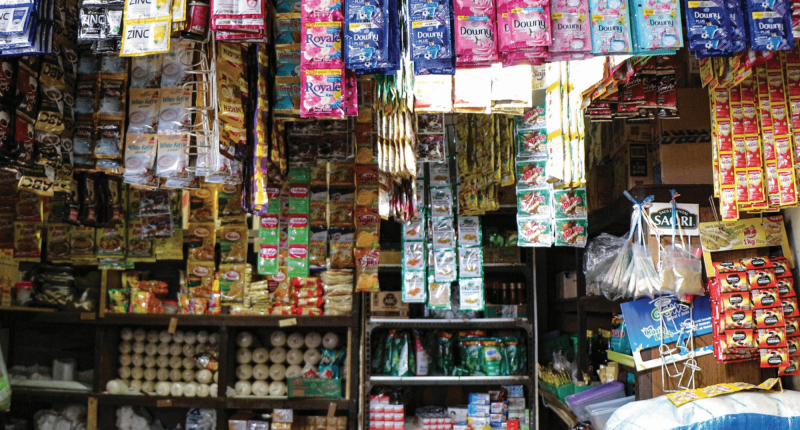Opinions expressed by Entrepreneur contributors are their own.
You’re reading Entrepreneur Middle East, an international franchise of Entrepreneur Media.
In an age where convenience reigns supreme, the United Nations Environment Program (UNEP) has brought to light our addiction to single-use plastic, a sobering reality that underscores a global crisis.
Each year, we produce plastic waste equivalent to the entire global population’s weight, of which only 9% is estimated to have ever been recycled, while a staggering 79% accumulates in landfills or is dumped into the natural environment. There, these plastics persist for centuries, gradually fragmenting into smaller particles known as microplastics that infiltrate the food chain, contaminate our drinking water, and eventually, replace the nutrients on our dinner plates.
A silent but pervasive threat to both health and the environment, microplastics now serve as a defining geological marker of the Anthropocene era. This era could be encapsulated by layers of plastic waste, embedded in the earth for future generations to uncover. Thus, the UNEP has called for immediate and decisive action from governments, industries, and individuals alike, challenging them to break free from the shackles of single-use plastic and reverse this trend.
In the heart of the Philippines, Green Antz has emerged as a transformative force in waste management and the circular economy. Founded in 2013, this innovative company is on a mission to tackle the plastic pollution crisis head-on. The Philippines, with just 1.4% of the world’s population, astonishingly contributes over one-third of the world’s marine plastic waste. The “sachet economy” in the Philippines, driven by limited disposable income and rising consumerism, results in the consumption of approximately 163 million small, single-use plastic sachets every day. These sachets, sadly, have no commercial value, leading to the choking of the country and its waterways with billions of discarded plastics.
 Chinky Cordova, Head of Waste Management, Green Antz. Source: Green Antz
Chinky Cordova, Head of Waste Management, Green Antz. Source: Green Antz
According to Chinky Cordova, Head of Waste Management at Green Antz, the Philippines is not yet equipped to solve the totality of the plastic waste problem- but Green Antz is making strides. Indeed, Green Antz has a clear strategy to deal with the challenge:
-
Expand the plastic waste collection network across local governments, schools, corporations, and residential areas, establishing a nationwide footprint.
-
Increase processing capacities and capabilities by innovating new recycled plastic products including 100% recycled plastic feedstock for local manufacturing use, and target plastic types with the lowest recycling rates such as plastic sachets in the Philippines.
-
Provide nationwide awareness of plastic recycling, and the role of circularity in the community, especially among the youth.
-
Expand the business into new ASEAN markets
A COLLECTIVE EFFORT TO BOOST THE CIRCULAR ECONOMY
In Q1 2023, Green Antz collected 500,000 kilograms of plastic waste- an 829% year-on-year (YoY) increase, and the equivalent of 83 million plastic utensils, 14 million plastic bottles, 50 million plastic cups, 100 million plastic bags kept from contributing to the ever-growing plastic pollution crisis.
One of the fundamental pillars underpinning Green Antz’s remarkable success in waste management is its extensive network of collaborations and partnerships with various stakeholders throughout the country. These strategic alliances have significantly expanded the scope of their impact.
For instance, Green Antz has joined forces with Rotary International, a collaboration aimed at recycling approximately 25 kilo-tons of plastic waste annually. This joint effort is a critical step in their mission to reduce plastic waste by 1% by 2025.
In another impactful partnership, Shell Lubricants Philippines has enthusiastically embraced the concept of “circular solutions.” Customers now have the opportunity to contribute to this sustainable initiative by depositing used lubricant bottles and other plastic waste items. These materials are then recycled to be reinjected into the economy via various mediums.
Green Antz maintains a steadfast commitment to continuous innovation, perpetually seeking novel and sustainable methods for the effective and efficient recycling of plastic. A prime example of this sustainable cycle is the production and sale of eco-bricks by Green Antz to the construction industry.
 Source: Green Antz
Source: Green Antz
The impact has been nothing short of extraordinary. As a tangible testament to the potential of transforming waste into opportunity, Culianin Elementary School in Plaridel collected an impressive 9,000 kilograms of plastics. These plastics were ingeniously repurposed to construct essential infrastructure, including a clock tower, pathways, and a school canteen.
This approach to the circular economy has earned the support of the Bank of the Philippine Islands (BPI), Southeast Asia’s first bank, and one of the Philippines’ largest. As the Asia-Pacific region intensifies efforts to address consumption and production patterns problems, Green Antz and BPI are determined to uplift future generations by institutionalizing the circular economy model.
Green Antz plays an indispensable role in the realm of waste management, as exemplified by its strategic collaborations with prominent clients such as P&G, RFM, and Colgate-Palmolive. These alliances are anchored in the principles of the extended producer responsibility (EPR) law, which imposes a mandate on companies to actively collect and recycle a portion of the plastic they introduce into the market.
Late in July 2022, the Philippines’ EPR Act of 2022 lapsed into law, officially mandating companies, including industry giants like P&G, to undertake the collection of 20% of the plastic they produce, with this quota escalating to 40% in the subsequent year. With a 10% annual increase up to 80% by 2028 and onwards, Green Antz is in a perfect position to assist these corporations in fulfilling their mandated responsibilities.
Through the responsible collection and recycling of plastic, Green Antz accumulates plastic credits, which are then made available to companies to help in their ESG goals or EPR compliance. In recognition of its invaluable contribution to the reduction of plastic waste, Green Antz receives additional funding, solidifying its role as a crucial player in this sustainable ecosystem.
A critical partner in Green Antz’s journey is Arowana Impact Capital (AIC), a certified B Corporation, renowned for its diverse global portfolio in sectors like renewable energy, education, venture capital, and asset management, underscoring its commitment to impactful and sustainable business practices.
 Benn Lim, Chief Operating and Impact Officer, Arowana. Source: Arowana
Benn Lim, Chief Operating and Impact Officer, Arowana. Source: Arowana
AIC, with its firm commitment to the circular economy, has been actively working to build a broader ecosystem to address the plastic waste issue. AlC has been instrumental in providing strategic and operational support to Green Antz, as well as navigating the external environment with the help of AIC’s advisors on recycling technology and market awareness, new client introductions, and partnerships.
Managing the growth stage of a company comes with a set of challenges unlike those from the inception stage, but Arowana’s experience in scaling companies has helped Green Antz professionalize and optimize for scale. AIC’s long-term vision for Green Antz is to grow and expand its impact rapidly in the Philippines and the ASEAN region.
Recognizing Green Antz as a pivotal entity in bridging the public and private sectors and addressing the processing gap in the ecosystem, AIC sees Green Antz as central to their portfolio in solving the plastic waste issue. This vision guides their subsequent investments and strategic decisions aimed at solving the plastic waste problem in the region.
 Broderic Dytoc, Global Venture Development Manager, Arowana Impact Capital. Source: Arowana Impact Capital
Broderic Dytoc, Global Venture Development Manager, Arowana Impact Capital. Source: Arowana Impact Capital
Green Antz’s ambitions extend beyond the Philippines to priority markets like Indonesia, Thailand, Singapore, and the Ivory Coast. The team aims to share their waste recovery ecosystem with the world, demonstrating that innovative solutions can lead to a cleaner, more sustainable, and economically vibrant future.
Green Antz’s journey is a testament to the power of transformation, where waste becomes a valuable resource, and collective efforts pave the way for a sustainable future. The Philippines may have faced a plastic pollution crisis, but with pioneers like Green Antz leading the way and visionary partners like Arowana Impact Capital, there’s hope for a brighter and cleaner tomorrow.








